Home Depot (NYSE:HD) Quarterly Earnings Preview:
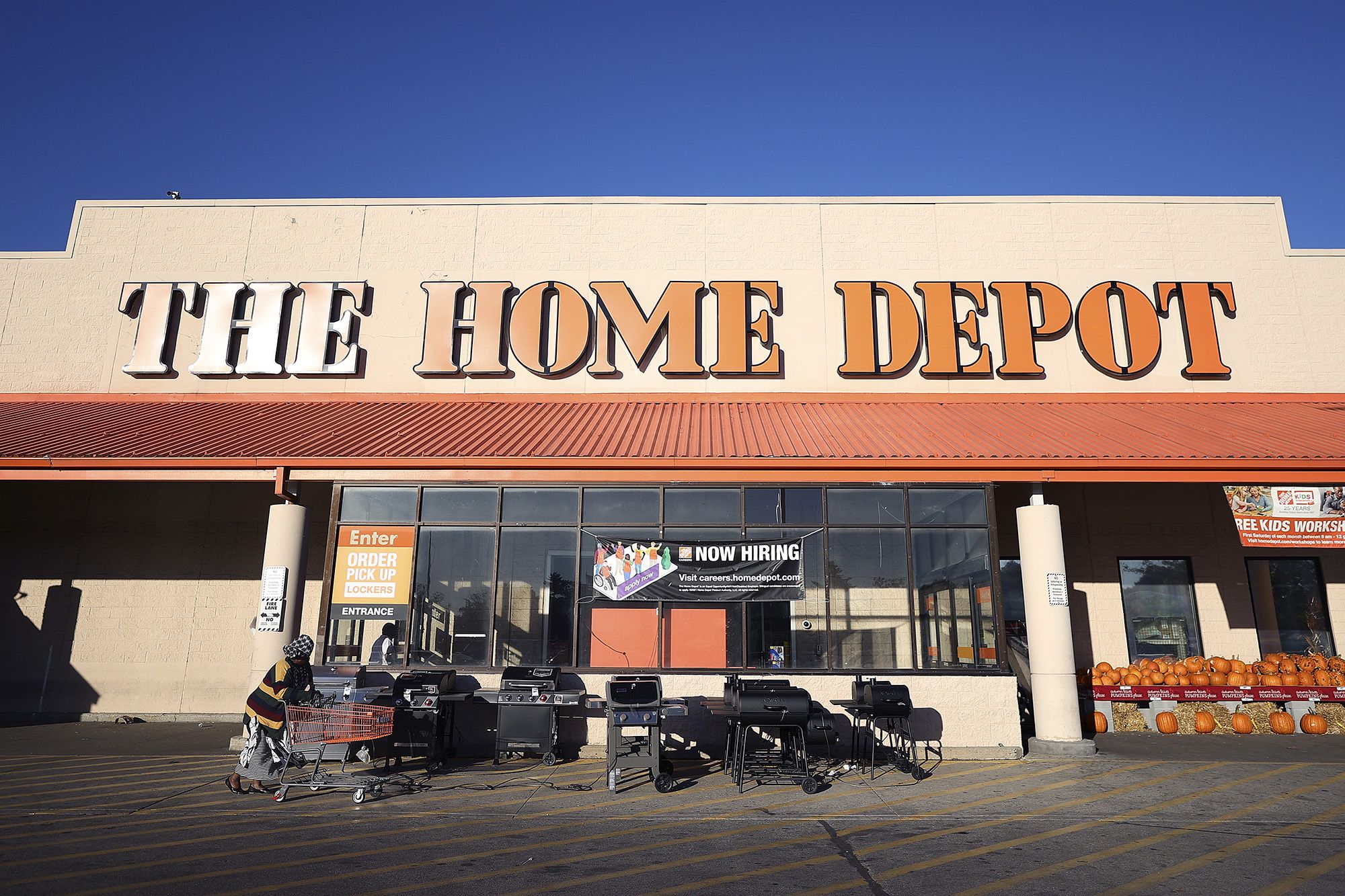
A Detailed Analysis
- Home Depot is expected to report an EPS of $3.60 and revenue of approximately $39.27 billion, indicating a slight year-over-year decline in EPS but an 8% growth in revenue.
- The company's P/E ratio is approximately 25.49, with a price-to-sales ratio of about 2.37, reflecting its market valuation.
- Despite a high debt-to-equity ratio of 9.38, Home Depot's current ratio of 1.11 suggests financial stability.
Home Depot (NYSE:HD) is a leading home improvement retailer in the United States, known for its wide range of products and services catering to both DIY enthusiasts and professional contractors. As a major player in the retail sector, Home Depot competes closely with Lowe's (NYSE:LOW), another significant name in the home improvement industry. Both companies are set to release their quarterly earnings, with Home Depot's announcement scheduled for Tuesday, May 20, 2025.
Analysts expect Home Depot to report earnings per share (EPS) of $3.60, with revenue projected at approximately $39.27 billion. This represents a slight year-over-year decline in EPS of 1.1%, as highlighted by the anticipated EPS of $3.59 for the quarter ending April 2025. However, revenue is expected to rise by 8% from the previous year. This growth in revenue suggests a positive trend for the company, despite the slight dip in EPS. The retail sector is currently facing mixed performance, as seen with Walmart's recent earnings report. While Walmart's domestic e-commerce business turned profitable, the 'general merchandise' category, including electronics and home goods, showed slight declines. This highlights the challenges and opportunities within the retail sector, which Home Depot must navigate as it prepares to release its earnings.
Home Depot's financial metrics provide insight into its market valuation. The company has a price-to-earnings (P/E) ratio of approximately 25.49, indicating the price investors are willing to pay for each dollar of earnings. Its price-to-sales ratio stands at about 2.37, reflecting the value placed on each dollar of sales. Additionally, the enterprise value to sales ratio is around 2.75, offering a perspective on the company's valuation relative to its revenue. The company's debt-to-equity ratio is notably high at 9.38, indicating a significant reliance on debt financing. This could be a point of concern for investors, as it suggests a higher financial risk. However, Home Depot's current ratio of approximately 1.11 indicates its ability to cover short-term liabilities with short-term assets, providing some reassurance about its financial stability.
| Symbol | Price | %chg |
|---|---|---|
| DEPO.JK | 278 | -4.32 |
| HD.NE | 23.73 | 0 |
| HD | 379.35 | -0.09 |
| HDI.DE | 330.05 | 0 |
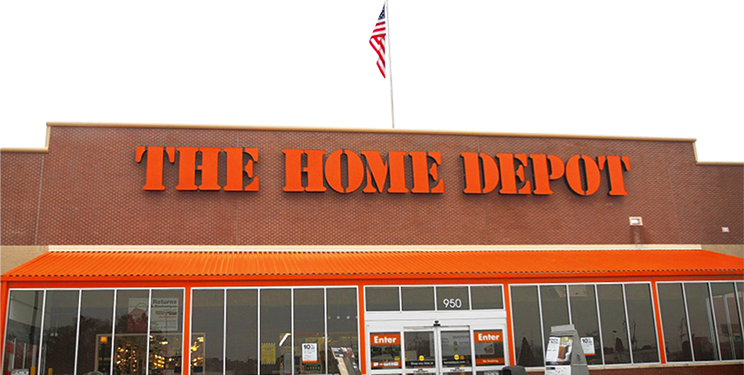
The Home Depot, Inc. (NYSE: HD) Stock Analysis
- The consensus price target for Home Depot (NYSE:HD) reflects a positive sentiment from analysts, with a recent average price target of $432.
- Analysts have become more optimistic about Home Depot's prospects, adjusting their price targets upwards in recent months despite broader market concerns.
- Investor focus is on the upcoming earnings release and broader market conditions, including potential rate cuts by the Federal Reserve.
The Home Depot, Inc. (NYSE:HD) is a leading home improvement retailer, offering a wide range of products and services for both homeowners and professionals. The company operates numerous stores across the United States, Canada, and Mexico, providing customers with tools, construction products, and services. Home Depot competes with other major retailers like Lowe's and Walmart in the home improvement sector.
The consensus price target for Home Depot has seen fluctuations over the past year. Last month, the average price target was $432, reflecting a positive sentiment from analysts. This suggests an expectation of growth or stability in the company's stock value. Analyst Chuck Grom from Gordon Haskett Capital Corporation has set a price target of $355, indicating confidence in the company's potential for future growth despite current challenges.
Last quarter, the average price target was $412.5, slightly lower than the current month's target. This indicates that analysts have become more optimistic about Home Depot's prospects in recent months. Greg Melich from Evercore ISI highlighted Home Depot as a top name in their portfolio, emphasizing its resilience amidst challenges such as tariffs and inflation, as discussed on CNBC's 'Squawk on the Street'.
A year ago, the average price target was $420.89, showing a moderate increase compared to the current target. This suggests steady confidence in Home Depot's performance over the year. Despite macroeconomic pressures affecting the stock, analyst Marley Kayden notes these factors ahead of the company's earnings report. Investors are keenly watching the upcoming earnings release to gauge Home Depot's financial performance and potential investment opportunities.
Broader market conditions and economic factors could influence future price target adjustments. The markets are experiencing a slight downturn, with investors focusing on the Federal Reserve's annual symposium in Jackson Hole, Wyoming. According to Yahoo Finance, there is an 85% probability of a rate cut by at least 0.25% next month. Investors are also anticipating earnings reports from major retailers, including Home Depot, Lowe’s, Target, and Walmart, amidst concerns about the strength of the U.S. consumer.
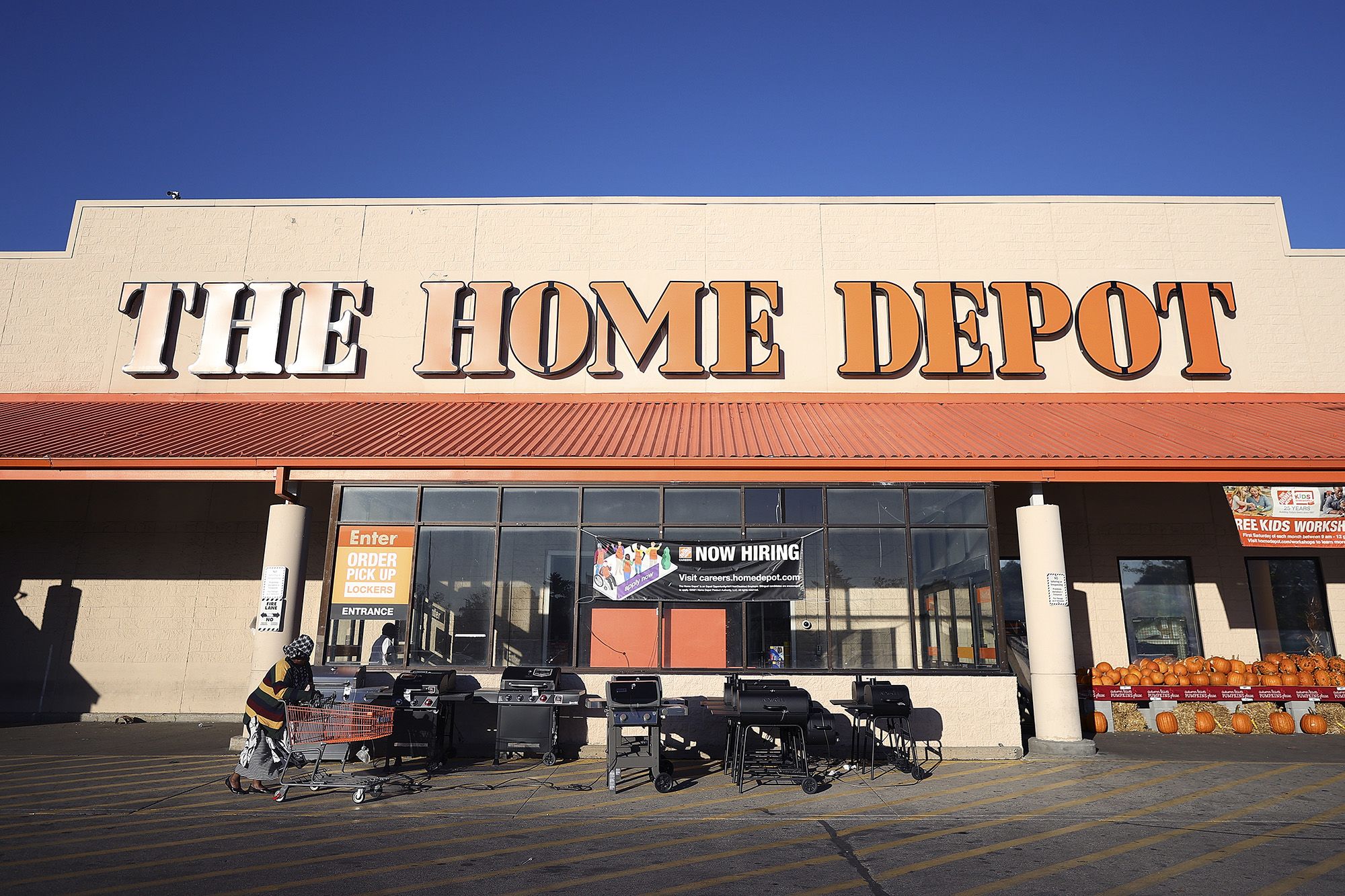
Home Depot (NYSE:HD) Quarterly Earnings Preview: Key Insights and Financial Health
- Anticipated Earnings: Home Depot is expected to report an EPS of $4.71 and revenue of $45.3 billion for the second quarter of fiscal 2025, marking a 5.4% increase in revenue year-over-year.
- One Home Depot Strategy: The company's focus on integrating its physical and digital operations is contributing to its growth, despite macroeconomic challenges and high interest rates.
- Financial Metrics: With a P/E ratio of 27.13, a price-to-sales ratio of 2.44, and a high debt-to-equity ratio of 7.70, Home Depot's financial health and market valuation will be key areas of interest for investors.
Home Depot (NYSE:HD) is a leading home improvement retailer in the United States, known for its wide range of products and services catering to both DIY enthusiasts and professional contractors. As the company prepares to release its quarterly earnings on August 19, 2025, analysts are keenly observing its financial performance. The anticipated earnings per share (EPS) is $4.71, with projected revenue of approximately $45.3 billion. The expected revenue of $45.3 billion for the second quarter of fiscal 2025 represents a 5.4% increase from the previous year, as highlighted by the company's growth in various categories and the acquisition of SRS.
This growth is significant, especially in the face of challenges such as high interest rates and macroeconomic pressures that have softened demand for big-ticket discretionary items. Home Depot's "One Home Depot" strategy continues to drive momentum, contributing to the anticipated 0.9% rise in EPS to $4.71. This strategy focuses on integrating the company's physical and digital operations to enhance customer experience and streamline operations. Despite a slight 0.1% downward revision in the consensus EPS estimate over the past 30 days, analysts remain optimistic about the company's performance.
The company's financial metrics provide further insight into its valuation and financial health. With a price-to-earnings (P/E) ratio of approximately 27.13, investors are willing to pay a premium for each dollar of earnings. The price-to-sales ratio of about 2.44 and enterprise value to sales ratio of 2.81 reflect the market's valuation of Home Depot's revenue. However, the high debt-to-equity ratio of 7.70 indicates a significant reliance on debt financing, which could pose risks if interest rates continue to rise.
As Home Depot prepares to release its earnings, the management's discussion during the earnings call will be crucial in assessing the sustainability of its growth and future earnings expectations. Investors will be closely watching to see if the company can surpass the expected EPS of $4.71, as this could lead to positive stock price movement. Conversely, if the results fall short, the stock may experience a decline.
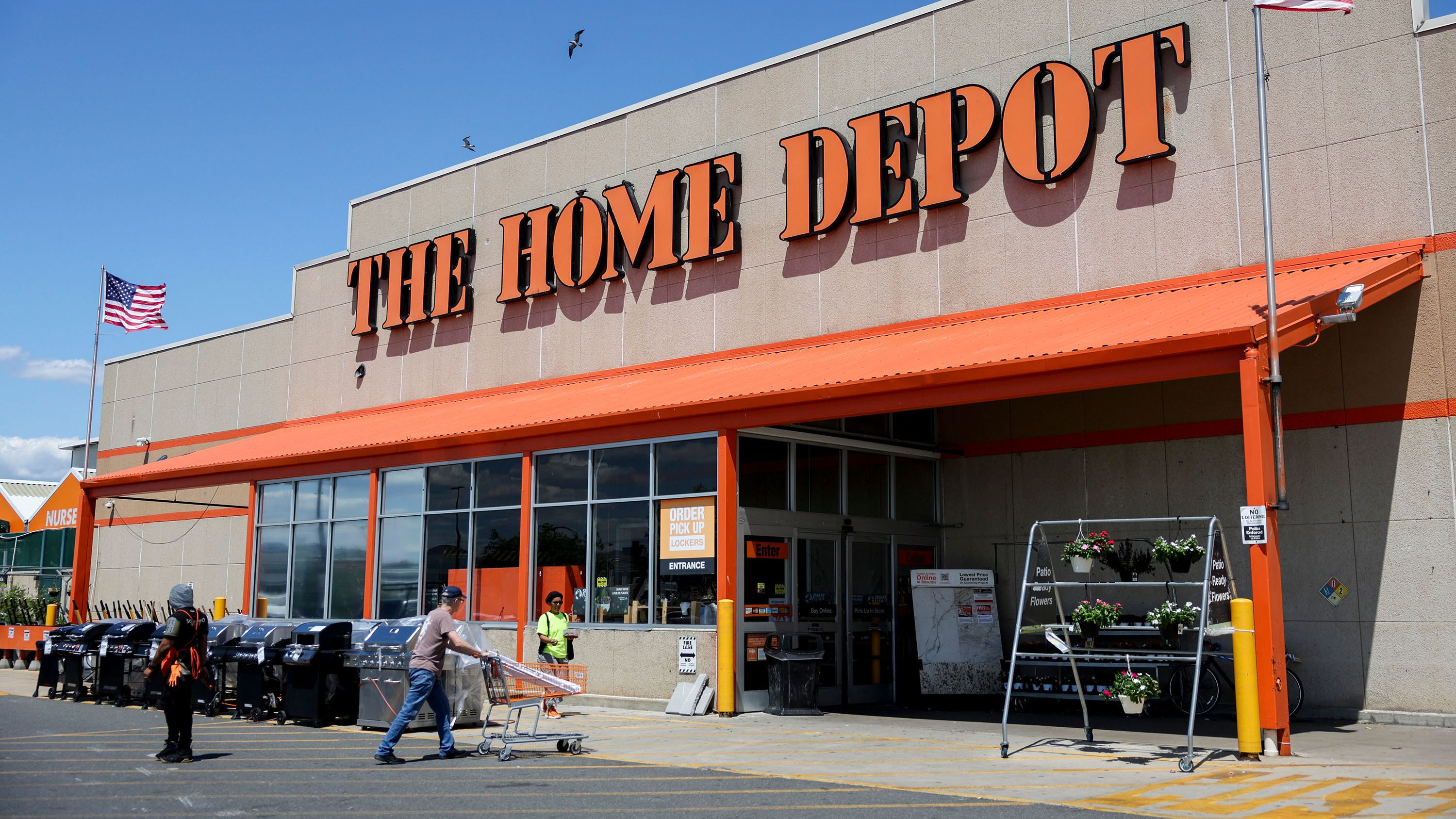
Home Depot Inc (NYSE: HD) Stock Update and Strategic Moves
- TD Securities upgrades Home Depot Inc (NYSE: HD) to "Buy" with a current stock price of $367.96.
- The company plans to limit foreign sourcing to 10% by 2026 to mitigate tariff threats.
- Home Depot's market capitalization stands at $366.09 billion, showcasing its significant retail sector presence.
Home Depot Inc (NYSE: HD) is a leading home improvement retailer in the United States, offering a wide range of products, including building materials, home improvement supplies, and garden products. Competing with other major retailers like Lowe's and Menards, Home Depot is renowned for its extensive product selection and customer service.
On June 2, 2025, TD Securities changed its rating for Home Depot to "Buy," despite the action being labeled as a downgrade. At the time of this update, the stock was priced at $367.96. This decision reflects confidence in Home Depot's strategic moves, such as its plan to limit foreign sourcing to 10% by 2026. This strategy aims to reduce risks from potential new tariff threats.
Home Depot's current stock price is $367.96, showing a slight decrease of 0.33, or approximately -0.09%. The stock has experienced fluctuations today, with a low of $361.84 and a high of $368.04. Over the past year, the stock has seen a high of $439.37 and a low of $323.93. These figures indicate the stock's volatility and the market's response to Home Depot's strategies.
The company's market capitalization is approximately $366.09 billion, reflecting its significant presence in the retail sector. With a trading volume of 2,504,863 shares, Home Depot remains an active player in the stock market. The company's decision to cap foreign sourcing sets it apart from other U.S. retailers, highlighting its proactive approach to managing international trade risks.

Home Depot Tops Revenue Forecasts, Misses on EPS
Home Depot (NYSE:HD) reported mixed fiscal Q1 2025 results, beating revenue expectations but narrowly missing on earnings, while sticking to its full-year guidance.
The home improvement giant posted revenue of $39.86 billion, topping the $39.25 billion consensus and marking a 9.4% year-over-year increase. Adjusted earnings per share came in at $3.56, below the $3.59 estimate.
Comparable sales declined 0.3% globally but rose 0.2% in the U.S., with currency fluctuations reducing total comp sales by roughly 70 basis points.
Despite the EPS miss, management reaffirmed its fiscal 2025 outlook, calling for total sales growth of approximately 2.8%, comparable sales growth of about 1%, and a 2% decline in adjusted EPS from the $15.24 recorded in fiscal 2024.
Home Depot also plans to open 13 new stores and keep capital expenditures around 2.5% of total sales, signaling a steady investment pace despite near-term earnings pressure.
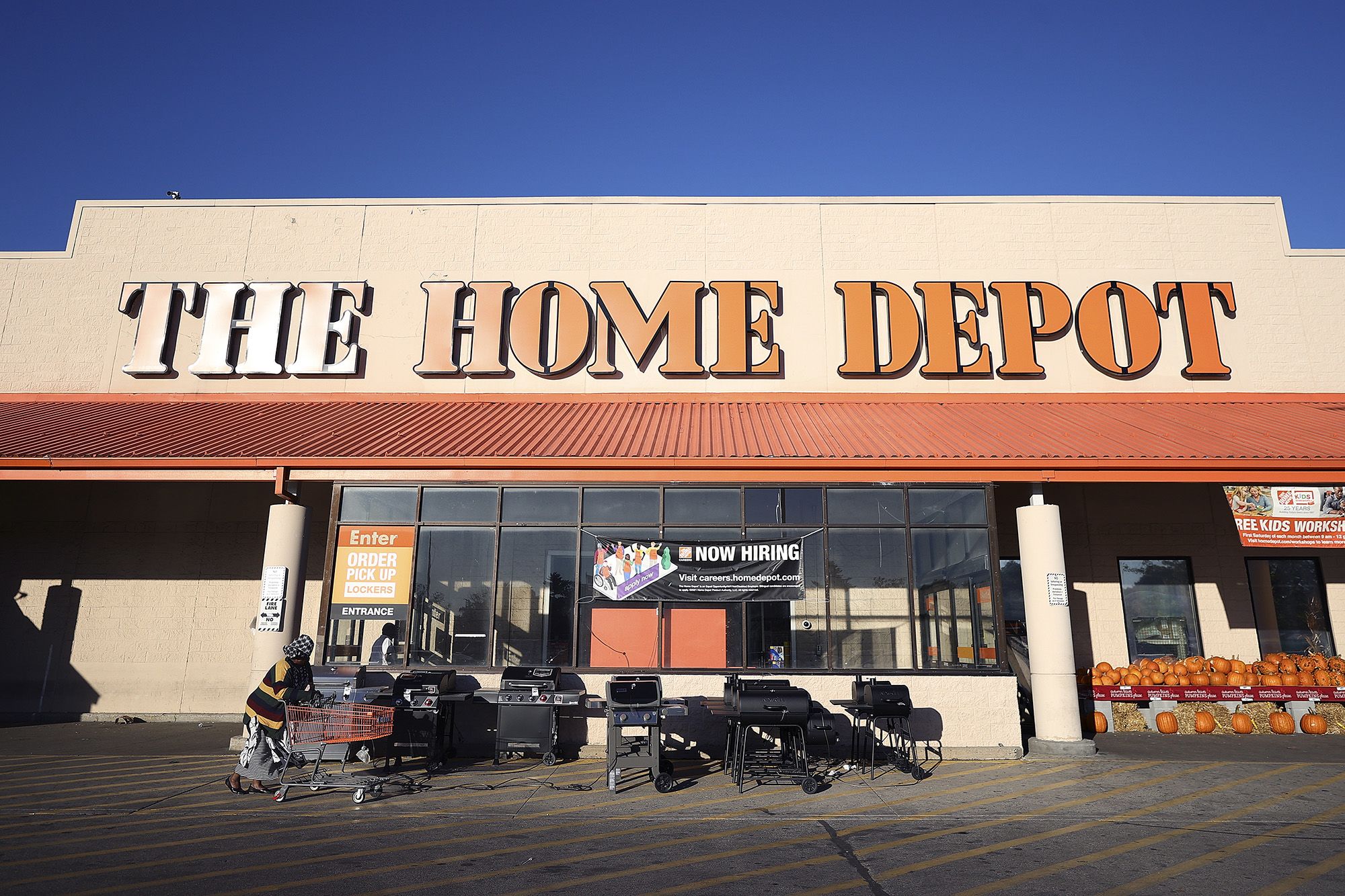
Home Depot's (NYSE:HD) Q1 Fiscal 2025 Financial Performance Analysis
- Earnings Per Share (EPS): Home Depot reported an EPS of $3.56, slightly below the estimated $3.60.
- Revenue Growth: The company achieved a revenue of approximately $39.86 billion, surpassing the estimated $39.30 billion.
- Market Position and Financial Metrics: Despite a slight decline in comparable store sales, Home Depot's strong market position is reflected in its revenue growth and financial ratios such as the P/E ratio of 25.39 and a debt-to-equity ratio of 9.38.
Home Depot (NYSE:HD), the world's largest home improvement retailer, recently reported its financial results for the first quarter of fiscal 2025. The company, known for its wide range of home improvement products, competes with other major retailers like Lowe's. On May 20, 2025, Home Depot announced earnings per share (EPS) of $3.56, slightly below the estimated $3.60. Despite this, the company achieved a revenue of approximately $39.86 billion, surpassing the estimated $39.30 billion.
The reported EPS of $3.56 fell short of the Zacks Consensus Estimate of $3.59, marking a negative surprise of 0.84%. This is a decrease from the $3.63 per share reported in the same quarter last year. However, in the previous quarter, Home Depot exceeded expectations with earnings of $3.13 per share against an anticipated $3.04, resulting in a positive surprise of 2.96%.
Over the past four quarters, Home Depot has surpassed consensus EPS estimates three times, demonstrating its ability to perform well despite occasional setbacks. In terms of revenue, Home Depot reported $39.86 billion for the quarter ending April 2025, exceeding the Zacks Consensus Estimate by 1.15%. This represents a significant increase from the $36.42 billion in revenue reported in the same quarter the previous year.
The company has consistently outperformed consensus revenue estimates in the last four quarters, highlighting its strong market position and effective business strategies. Despite a slight decline of 0.3% in comparable store sales, which was marginally worse than the projected 0.24% drop, sales at U.S. locations increased by 0.2%, contrary to expectations of a minor decrease.
CEO Ted Decker expressed satisfaction with the results, emphasizing continued customer engagement in smaller projects and spring events. The CFO also indicated that Home Depot plans to "generally maintain" its current price levels, suggesting stability in its pricing strategy. Home Depot's financial metrics provide further insight into its market position.
The company has a price-to-earnings (P/E) ratio of approximately 25.39, indicating the market's valuation of its earnings. The price-to-sales ratio stands at about 2.36, reflecting its market value relative to revenue. Additionally, the enterprise value to sales ratio is around 2.74, and the enterprise value to operating cash flow ratio is approximately 22.10. The debt-to-equity ratio is notably high at 9.38, indicating a significant level of debt compared to equity. Lastly, the current ratio is approximately 1.11, suggesting the company's ability to cover its short-term liabilities with its short-term assets.
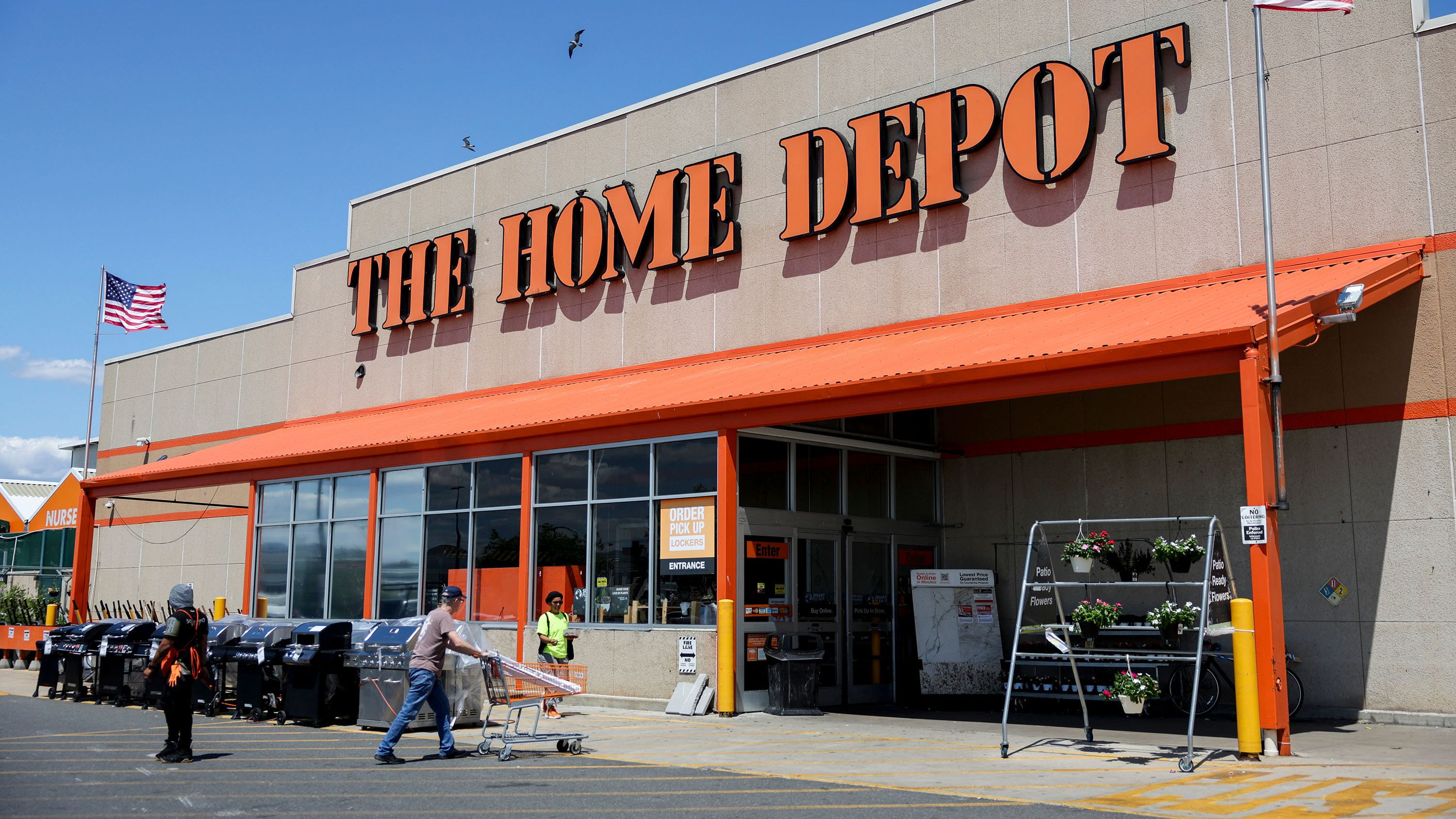
Home Depot's Strong Financial Performance in the Latest Quarter
- Home Depot (NYSE:HD) reported earnings per share (EPS) of $3.13, surpassing the estimated $3.04.
- The company's revenue reached $39.7 billion, exceeding the estimated $39.25 billion.
- Despite positive results, Home Depot issued weaker guidance, causing volatile share movements.
Home Depot (NYSE:HD) is a leading home improvement retailer, offering a wide range of products and services for home renovation and construction. It competes with other major retailers like Lowe's and Menards. On February 25, 2025, Home Depot reported earnings per share (EPS) of $3.13, surpassing the estimated $3.04, and revenue of $39.7 billion, exceeding the estimated $39.25 billion.
The company's strong financial performance is evident in its earnings surprise of 2.96% for the quarter, as highlighted by Jenny Horne. This marks an increase from the $2.82 per share reported in the same quarter last year. Home Depot has consistently outperformed consensus EPS estimates over the past four quarters, demonstrating its ability to deliver strong results.
In addition to impressive earnings, Home Depot's revenue of $39.7 billion for the quarter ending January 2025 exceeded the Zacks Consensus Estimate by 1.44%. This represents a significant increase from the $34.79 billion reported a year ago. The company has surpassed consensus revenue estimates in three of the last four quarters, showcasing its robust financial performance and growth in the Zacks Retail - Home Furnishings industry.
Despite the positive results, Home Depot's guidance was weaker than anticipated, contributing to volatile share movements. CEO Ted Decker noted that while there is "greater engagement" in home improvement spending, higher interest rates have led to delays in major renovation projects. CFO Richard McPhail remains optimistic, suggesting that demand will return as higher rates become the "new normal."
Home Depot's financial metrics provide further insight into its performance. The company has a price-to-earnings (P/E) ratio of approximately 25.94, indicating the price investors are willing to pay for each dollar of earnings. Its debt-to-equity ratio is notably high at approximately 10.95, reflecting a significant reliance on debt financing. Despite this, the current ratio of around 1.13 suggests good short-term financial health.







